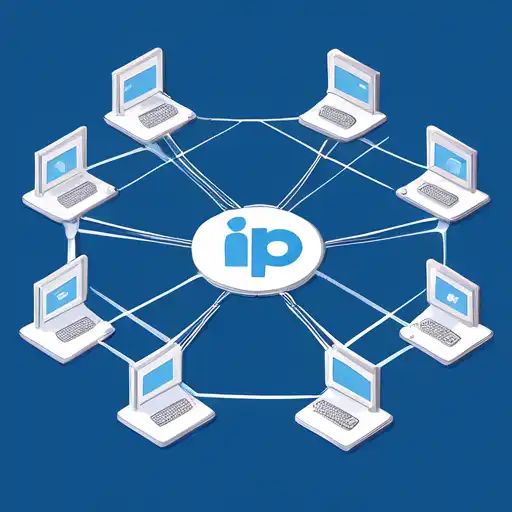Introduction to IP Addresses
In the vast world of networking, understanding IP addresses is fundamental. An IP (Internet Protocol) address is a unique identifier assigned to each device connected to a network, enabling communication between devices. This guide will walk you through the basics of IP addresses, their types, and their importance in networking.
What is an IP Address?
An IP address is a numerical label assigned to each device participating in a computer network that uses the Internet Protocol for communication. It serves two main functions: identifying the host or network interface and providing the location of the host in the network.
Types of IP Addresses
There are two main types of IP addresses: IPv4 and IPv6. IPv4 addresses are 32-bit numbers, typically displayed in decimal format (e.g., 192.168.1.1), while IPv6 addresses are 128-bit numbers, designed to replace IPv4 due to the exhaustion of IPv4 addresses.
IPv4 vs. IPv6
IPv4 has been the dominant IP version, but with the internet's growth, IPv6 was introduced to offer a much larger address space. IPv6 also includes improvements in routing and network autoconfiguration.
How IP Addresses Work
IP addresses are assigned to devices either dynamically by a DHCP server or statically by a network administrator. When you connect to the internet, your ISP assigns an IP address to your device, allowing it to communicate with other devices worldwide.
The Importance of IP Addresses in Networking
IP addresses are crucial for the internet's functionality, enabling devices to locate and communicate with each other. Without IP addresses, the internet as we know it would not exist.
Internal Links
For more information on networking basics, check out our guide on Networking Fundamentals. If you're interested in learning more about IPv6, our IPv6 Guide provides in-depth insights.
Conclusion
Understanding IP addresses is the first step towards mastering networking. Whether you're a beginner or looking to refresh your knowledge, this guide provides a solid foundation. Remember, the internet relies on IP addresses to function, making them an essential part of our digital world.
